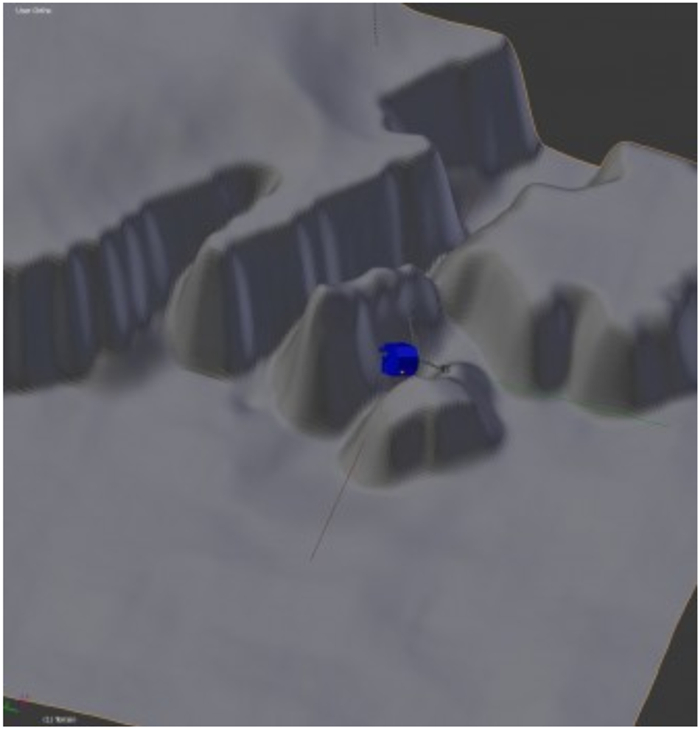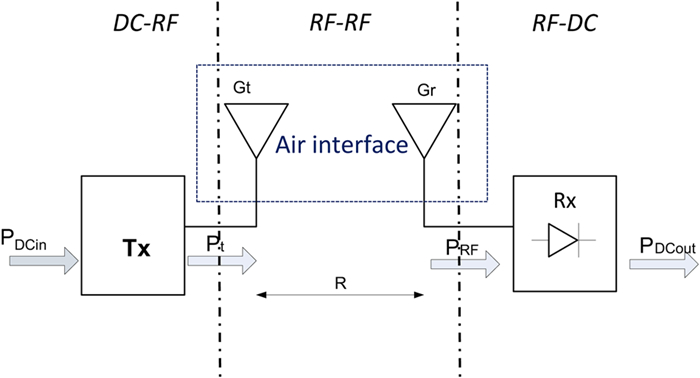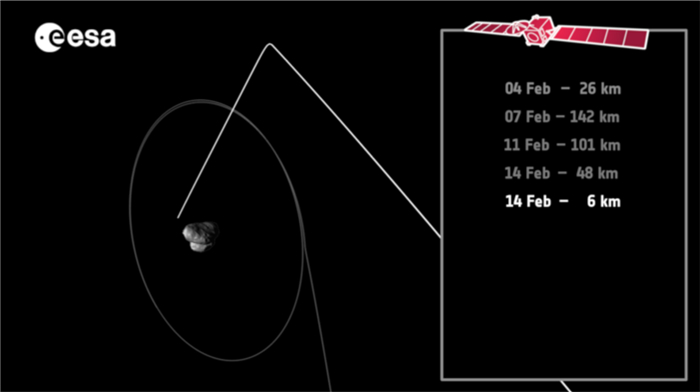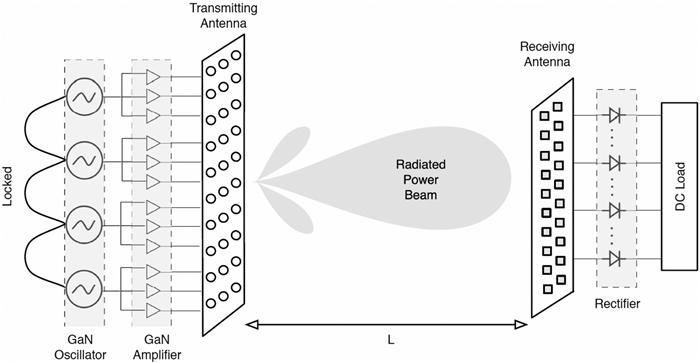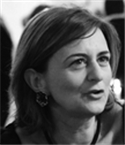 Alessandra Costanzo
Alessandra Costanzo is a full professor at the University of Bologna, Italy. Her research activities are dedicated to CAD algorithms for multi-domain co-design and modeling of active nonlinear microwave/RF circuits. Recently she has proposed novel solutions for energy autonomous RF systems based on wireless power transmission, adopting both far-field and near-field solutions, for several power levels and operating frequencies. She has authored more than 200 scientific publications in peer-reviewed international journals and conferences and several book chapters. Dr. Costanzo is a co-founder of the EU COST Action IC1301 WiPE Wireless Power Transfer for Sustainable Electronics, where she chaired WG1: Far-Field Wireless Power Transfer. She is past-chair of the MTT-26 Committee on Wireless Energy Transfer and Conversion and member of the MTT-24 Committee on RFID. Since 2016, she has been the Steering Committee Chair of the new IEEE Journal of Radio Frequency Identification. She is the MTT-S representative and Distinguished Lecturer of the Council on Radio Frequency Identification (CRFID). She serves as an Associate Editor for IEEE Transactions on Microwave Theory and Techniques, the Cambridge International Journal of Microwave and Wireless Technologies, and the Cambridge International Journal of Wireless Power Transfer. She is an IEEE senior member.
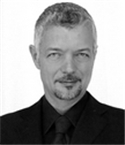 Luca Roselli MG
Luca Roselli MG in 1988 (IEEE-FM18, -M92, -SM01). In 1991 he joined the University of Perugia, where he is currently teaching Electronic Circuits and System and circuits for IoT, and where he is coordinating the HFE-Lab as a Qualified Full-Professor. In 2000 he founded the spin-off WiS Srl. From 2008 to 2012 he has been member of the Board of Directors of ART srl. He organized the Ⅶ "Computational Electromagnetic Time Domain" (CEM-TD-2007) and the first IEEE-Wireless Power Transfer Conference (WPTC-2013). He had been member of the ERC Panel PE7 and he still serves for H2020 evaluation. He is member of the list of experts of Italian Ministry of Research and he is serving as an expert reviewer for several European and national institutions. He is member of the board of Italian Ministry of Research for editing of the National Research Plan (PNR—Group 12 "Green Technologies"). He is involved in several conference boards and committees: IEEE Technical Committees MTT-24-RFID (past chair), -25-RF nanotechnologies (vice-chair), and -26-Wireless Power Transfer (chair); Advisory Committee of IEEE-WPTC, chairman of the SC-32 of IMS; and co-chair of the IEEE Wireless Sensor Network Conference (WiSNet). He is an Associated Editor of IEEE-Microwave Magazine. He is a reviewer for many international reviews (including IEEE-Proceedings, -MTT, and -MWCL). His research interest includes HF electronic systems, with special attention to RFID, green electronics, and WPT. In the last 7 years he worked mostly on electronic technologies for IoT. He has published more than 280 contributions (H-i 28, i10 82, more than 3000 citations—Scholar). He is author of the Cambridge University book: "Green RFID System" and he is under contract, still with CUP, for the publication of the book: "IoT technologies" (publication expected end of 2019).
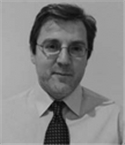 Apostolos Georgiadis
Apostolos Georgiadis (S'94-M'02-SM'08) was born in Thessaloniki, Greece. He received his B.S. degree in physics and M.S. degree in telecommunications from the Aristotle University of Thessaloniki, Thessaloniki, Greece, in 1993 and 1996, respectively, and his Ph.D. degree in electrical engineering from the University of Massachusetts, Amherst, MA, USA, in 2002. In 2002, he joined Global Communications Devices, North Andover, MA, USA, as a Systems Engineer where he involved in CMOS transceivers for wireless network applications. In 2003, he joined Bermai Inc., Minnetonka, MN, USA, as an RF/Analog Systems Architect. In 2005, he joined the University of Cantabria, Santander, Spain, as a Juan de la Cierva Fellow Researcher. In 2006, he worked as a consultant for Bitwave Semiconductor, Lowell, MA, USA. He collaborated with ACORDE S.A., Santander, Spain, where he involved in the design of integrated CMOS VCOs for ultra-wideband applications. In 2007, he joined the Technological Telecommunications Center of Catalonia (CTTC), Spain, as a Senior Researcher of communications subsystems. From 2013 to 2016, he was a Group Leader with the Microwave Systems and Nanotechnology Department, CTTC. In 2016, he joined Heriot-Watt University, Edinburgh, U.K., as an Associate Professor. He has authored more than 200 papers in peer-reviewed journals and international conferences. His current research interests include energy harvesting and wireless power transmission, RFID technology, active antennas and phased-array antennas, inkjet and 3-D printed electronics, and millimeter-wave systems. Dr. Georgiadis was a recipient of the Fulbright Scholarship for graduate studies at the University of Massachusetts, in 1996. He was the General Chair of the 2011 IEEE RFID-TA Conference and the General Co-Chair of the 2011 IEEE MTT-S IMWS on Millimeter Wave Integration Technologies. He is an EU Marie Curie Global Fellow. He is member of the IEEE MTT-S TC-24 RFID Technologies (past Chair) and a member of the IEEE MTT-S TC-26 Wireless Energy Transfer and Conversion. He was an Associate Editor of the IET Microwaves Antennas and Propagation journal, IEEE Microwave and Wireless Components Letters, and the IEEE Radio Frequency Identification (RFID) Virtual Journal. He is co-founder and past Editor-in-Chief of the Wireless Power Transfer Journal of Cambridge University Press. He serves as an Associate Editor for the IEEE Journal of RFID. He was an AdCom member of the IEEE Council on RFID serving as the Vice President of conferences. He was a Distinguished Lecturer of the IEEE Council on RFID. He is URSI Fellow and the Chair of the URSI Commission D, Electronics, and Photonics. In 2016, his proposal for Inkjet/3-D printed millimeter-wave systems received the Bell Labs Prize, third place among more than 250 proposals recognizing ideas that "change the game" in the field of information and communications technologies.
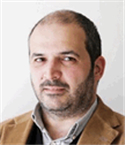 Nuno Borges Carvalho
Nuno Borges Carvalho (S'97–M'00–SM'05-F'15) was born in Luanda, Angola, in 1972. He received his Diploma and Doctoral degrees in electronics and telecommunications engineering from the University of Aveiro, Aveiro, Portugal, in 1995 and 2000, respectively. He is currently a Full Professor and a Senior Research Scientist with the Institute of Telecommunications, University of Aveiro and an IEEE Fellow. He coauthored Intermodulation in Microwave and Wireless Circuits (Artech House, 2003), Microwave and Wireless Measurement Techniques (Cambridge University Press, 2013), and White Space Communication Technologies (Cambridge University Press, 2014). He has been a reviewer and author of over 200 papers in magazines and conferences. He is the Editor in Chief of the Cambridge Wireless Power Transfer Journal, an associate editor of the IEEE Microwave Magazine and former associate editor of the IEEE Transactions on Microwave Theory and Techniques, and IET Microwaves Antennas and Propagation Journal. He is the co-inventor of six patents. His main research interests include software-defined radio front-ends, wireless power transmission, nonlinear distortion analysis in microwave/wireless circuits and systems, and measurement of nonlinear phenomena. He has recently been involved in the design of dedicated radios and systems for newly emerging wireless technologies. Dr. Borges Carvalho is a member of the IEEE MTT ADCOM, the past-chair of the IEEE Portuguese Section, MTT-20 and MTT-11 and also involved in the technical committees, MTT-24 and MTT-26. He is also the vice-chair of the URSI Commission A (Metrology Group). He was the recipient of the 1995 University of Aveiro and the Portuguese Engineering Association Prize for the best 1995 student at the University of Aveiro, the 1998 Student Paper Competition (Third Place) of the IEEE Microwave Theory and Techniques Society (IEEE MTT-S) International Microwave Symposium (IMS), and the 2000 IEE Measurement Prize. He is a Distinguished Microwave Lecturer for the IEEE Microwave Theory and Techniques Society.
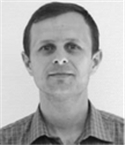 Alexandru Takacs
Alexandru Takacs (M'12) was born in Simleu Silvaniei, Romania, in March 1975. He received his Engineer diploma in electronic engineering from the Military Technical Academy, Bucharest, Romania, in 1999, and his Master degree and Ph.D. degree in microwave and optical communications from the National Polytechnic Institute of Toulouse (INPT), Toulouse, France, in 2000 and 2004, respectively. From 2004 to 2007, he was a Lecturer with the Military Technical Academy of Bucharest, and an Associate Researcher with the Microtechnology Institute of Bucharest. From 2008 to 2010, he occupied a Postdoctoral position with the Laboratory for Analysis and Architecture of Systems (LAAS), National Center for Scientific Research (CNRS), Toulouse, France. During 2011, he was an R & D RF Engineer with Continental Automotive SAS France, where he was in charge of antenna design and automotive electromagnetic simulation. Since 2012, he has been an Associate Professor with the University (Paul Sabatier), Toulouse, France, where he performed research within LAAS-CNRS. He has authored or coauthored one book, one book chapter, 15 papers in refereed journals, and over 70 communications in international symposium proceedings. His research interests include the design of microwave and RF circuits, energy harvesting and wireless power transfer, microelectromechanical systems (MEMS) circuits and systems, small antenna design, electromagnetic simulation techniques, and optimization methods.
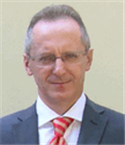 Pier Giorgio Arpesi
Pier Giorgio Arpesi received a Laurea degree in Electronic Engineering from the University of Pavia (Italy) in 1990. From 1990 to 1996 he worked for Siemens Telecomunicazioni in Milano (Italy); from 1996 to 2001 he was with Laben/Alenia Aerospazio (Italy), then moved to Leonardo SpA, where he is currently head of the "Atomic Clocks & RF Systems" group within the Space Engineering section. His work has been mainly concerned with the design and development of RF and microwave equipment for space applications, with particular regard to extremely low noise receivers, frequency synthesizers and UHF solid state high power amplifiers. His research interests include the use of wireless RF-based technology in space for sensing, navigation and remote power supply applications.


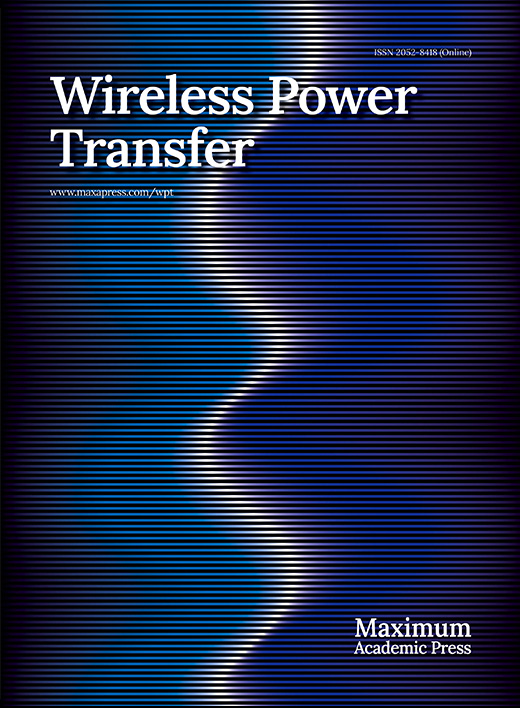






 Alessandra Costanzo is a full professor at the University of Bologna, Italy. Her research activities are dedicated to CAD algorithms for multi-domain co-design and modeling of active nonlinear microwave/RF circuits. Recently she has proposed novel solutions for energy autonomous RF systems based on wireless power transmission, adopting both far-field and near-field solutions, for several power levels and operating frequencies. She has authored more than 200 scientific publications in peer-reviewed international journals and conferences and several book chapters. Dr. Costanzo is a co-founder of the EU COST Action IC1301 WiPE Wireless Power Transfer for Sustainable Electronics, where she chaired WG1: Far-Field Wireless Power Transfer. She is past-chair of the MTT-26 Committee on Wireless Energy Transfer and Conversion and member of the MTT-24 Committee on RFID. Since 2016, she has been the Steering Committee Chair of the new IEEE Journal of Radio Frequency Identification. She is the MTT-S representative and Distinguished Lecturer of the Council on Radio Frequency Identification (CRFID). She serves as an Associate Editor for IEEE Transactions on Microwave Theory and Techniques, the Cambridge International Journal of Microwave and Wireless Technologies, and the Cambridge International Journal of Wireless Power Transfer. She is an IEEE senior member.
Alessandra Costanzo is a full professor at the University of Bologna, Italy. Her research activities are dedicated to CAD algorithms for multi-domain co-design and modeling of active nonlinear microwave/RF circuits. Recently she has proposed novel solutions for energy autonomous RF systems based on wireless power transmission, adopting both far-field and near-field solutions, for several power levels and operating frequencies. She has authored more than 200 scientific publications in peer-reviewed international journals and conferences and several book chapters. Dr. Costanzo is a co-founder of the EU COST Action IC1301 WiPE Wireless Power Transfer for Sustainable Electronics, where she chaired WG1: Far-Field Wireless Power Transfer. She is past-chair of the MTT-26 Committee on Wireless Energy Transfer and Conversion and member of the MTT-24 Committee on RFID. Since 2016, she has been the Steering Committee Chair of the new IEEE Journal of Radio Frequency Identification. She is the MTT-S representative and Distinguished Lecturer of the Council on Radio Frequency Identification (CRFID). She serves as an Associate Editor for IEEE Transactions on Microwave Theory and Techniques, the Cambridge International Journal of Microwave and Wireless Technologies, and the Cambridge International Journal of Wireless Power Transfer. She is an IEEE senior member.  Luca Roselli MG in 1988 (IEEE-FM18, -M92, -SM01). In 1991 he joined the University of Perugia, where he is currently teaching Electronic Circuits and System and circuits for IoT, and where he is coordinating the HFE-Lab as a Qualified Full-Professor. In 2000 he founded the spin-off WiS Srl. From 2008 to 2012 he has been member of the Board of Directors of ART srl. He organized the Ⅶ "Computational Electromagnetic Time Domain" (CEM-TD-2007) and the first IEEE-Wireless Power Transfer Conference (WPTC-2013). He had been member of the ERC Panel PE7 and he still serves for H2020 evaluation. He is member of the list of experts of Italian Ministry of Research and he is serving as an expert reviewer for several European and national institutions. He is member of the board of Italian Ministry of Research for editing of the National Research Plan (PNR—Group 12 "Green Technologies"). He is involved in several conference boards and committees: IEEE Technical Committees MTT-24-RFID (past chair), -25-RF nanotechnologies (vice-chair), and -26-Wireless Power Transfer (chair); Advisory Committee of IEEE-WPTC, chairman of the SC-32 of IMS; and co-chair of the IEEE Wireless Sensor Network Conference (WiSNet). He is an Associated Editor of IEEE-Microwave Magazine. He is a reviewer for many international reviews (including IEEE-Proceedings, -MTT, and -MWCL). His research interest includes HF electronic systems, with special attention to RFID, green electronics, and WPT. In the last 7 years he worked mostly on electronic technologies for IoT. He has published more than 280 contributions (H-i 28, i10 82, more than 3000 citations—Scholar). He is author of the Cambridge University book: "Green RFID System" and he is under contract, still with CUP, for the publication of the book: "IoT technologies" (publication expected end of 2019).
Luca Roselli MG in 1988 (IEEE-FM18, -M92, -SM01). In 1991 he joined the University of Perugia, where he is currently teaching Electronic Circuits and System and circuits for IoT, and where he is coordinating the HFE-Lab as a Qualified Full-Professor. In 2000 he founded the spin-off WiS Srl. From 2008 to 2012 he has been member of the Board of Directors of ART srl. He organized the Ⅶ "Computational Electromagnetic Time Domain" (CEM-TD-2007) and the first IEEE-Wireless Power Transfer Conference (WPTC-2013). He had been member of the ERC Panel PE7 and he still serves for H2020 evaluation. He is member of the list of experts of Italian Ministry of Research and he is serving as an expert reviewer for several European and national institutions. He is member of the board of Italian Ministry of Research for editing of the National Research Plan (PNR—Group 12 "Green Technologies"). He is involved in several conference boards and committees: IEEE Technical Committees MTT-24-RFID (past chair), -25-RF nanotechnologies (vice-chair), and -26-Wireless Power Transfer (chair); Advisory Committee of IEEE-WPTC, chairman of the SC-32 of IMS; and co-chair of the IEEE Wireless Sensor Network Conference (WiSNet). He is an Associated Editor of IEEE-Microwave Magazine. He is a reviewer for many international reviews (including IEEE-Proceedings, -MTT, and -MWCL). His research interest includes HF electronic systems, with special attention to RFID, green electronics, and WPT. In the last 7 years he worked mostly on electronic technologies for IoT. He has published more than 280 contributions (H-i 28, i10 82, more than 3000 citations—Scholar). He is author of the Cambridge University book: "Green RFID System" and he is under contract, still with CUP, for the publication of the book: "IoT technologies" (publication expected end of 2019).  Apostolos Georgiadis (S'94-M'02-SM'08) was born in Thessaloniki, Greece. He received his B.S. degree in physics and M.S. degree in telecommunications from the Aristotle University of Thessaloniki, Thessaloniki, Greece, in 1993 and 1996, respectively, and his Ph.D. degree in electrical engineering from the University of Massachusetts, Amherst, MA, USA, in 2002. In 2002, he joined Global Communications Devices, North Andover, MA, USA, as a Systems Engineer where he involved in CMOS transceivers for wireless network applications. In 2003, he joined Bermai Inc., Minnetonka, MN, USA, as an RF/Analog Systems Architect. In 2005, he joined the University of Cantabria, Santander, Spain, as a Juan de la Cierva Fellow Researcher. In 2006, he worked as a consultant for Bitwave Semiconductor, Lowell, MA, USA. He collaborated with ACORDE S.A., Santander, Spain, where he involved in the design of integrated CMOS VCOs for ultra-wideband applications. In 2007, he joined the Technological Telecommunications Center of Catalonia (CTTC), Spain, as a Senior Researcher of communications subsystems. From 2013 to 2016, he was a Group Leader with the Microwave Systems and Nanotechnology Department, CTTC. In 2016, he joined Heriot-Watt University, Edinburgh, U.K., as an Associate Professor. He has authored more than 200 papers in peer-reviewed journals and international conferences. His current research interests include energy harvesting and wireless power transmission, RFID technology, active antennas and phased-array antennas, inkjet and 3-D printed electronics, and millimeter-wave systems. Dr. Georgiadis was a recipient of the Fulbright Scholarship for graduate studies at the University of Massachusetts, in 1996. He was the General Chair of the 2011 IEEE RFID-TA Conference and the General Co-Chair of the 2011 IEEE MTT-S IMWS on Millimeter Wave Integration Technologies. He is an EU Marie Curie Global Fellow. He is member of the IEEE MTT-S TC-24 RFID Technologies (past Chair) and a member of the IEEE MTT-S TC-26 Wireless Energy Transfer and Conversion. He was an Associate Editor of the IET Microwaves Antennas and Propagation journal, IEEE Microwave and Wireless Components Letters, and the IEEE Radio Frequency Identification (RFID) Virtual Journal. He is co-founder and past Editor-in-Chief of the Wireless Power Transfer Journal of Cambridge University Press. He serves as an Associate Editor for the IEEE Journal of RFID. He was an AdCom member of the IEEE Council on RFID serving as the Vice President of conferences. He was a Distinguished Lecturer of the IEEE Council on RFID. He is URSI Fellow and the Chair of the URSI Commission D, Electronics, and Photonics. In 2016, his proposal for Inkjet/3-D printed millimeter-wave systems received the Bell Labs Prize, third place among more than 250 proposals recognizing ideas that "change the game" in the field of information and communications technologies.
Apostolos Georgiadis (S'94-M'02-SM'08) was born in Thessaloniki, Greece. He received his B.S. degree in physics and M.S. degree in telecommunications from the Aristotle University of Thessaloniki, Thessaloniki, Greece, in 1993 and 1996, respectively, and his Ph.D. degree in electrical engineering from the University of Massachusetts, Amherst, MA, USA, in 2002. In 2002, he joined Global Communications Devices, North Andover, MA, USA, as a Systems Engineer where he involved in CMOS transceivers for wireless network applications. In 2003, he joined Bermai Inc., Minnetonka, MN, USA, as an RF/Analog Systems Architect. In 2005, he joined the University of Cantabria, Santander, Spain, as a Juan de la Cierva Fellow Researcher. In 2006, he worked as a consultant for Bitwave Semiconductor, Lowell, MA, USA. He collaborated with ACORDE S.A., Santander, Spain, where he involved in the design of integrated CMOS VCOs for ultra-wideband applications. In 2007, he joined the Technological Telecommunications Center of Catalonia (CTTC), Spain, as a Senior Researcher of communications subsystems. From 2013 to 2016, he was a Group Leader with the Microwave Systems and Nanotechnology Department, CTTC. In 2016, he joined Heriot-Watt University, Edinburgh, U.K., as an Associate Professor. He has authored more than 200 papers in peer-reviewed journals and international conferences. His current research interests include energy harvesting and wireless power transmission, RFID technology, active antennas and phased-array antennas, inkjet and 3-D printed electronics, and millimeter-wave systems. Dr. Georgiadis was a recipient of the Fulbright Scholarship for graduate studies at the University of Massachusetts, in 1996. He was the General Chair of the 2011 IEEE RFID-TA Conference and the General Co-Chair of the 2011 IEEE MTT-S IMWS on Millimeter Wave Integration Technologies. He is an EU Marie Curie Global Fellow. He is member of the IEEE MTT-S TC-24 RFID Technologies (past Chair) and a member of the IEEE MTT-S TC-26 Wireless Energy Transfer and Conversion. He was an Associate Editor of the IET Microwaves Antennas and Propagation journal, IEEE Microwave and Wireless Components Letters, and the IEEE Radio Frequency Identification (RFID) Virtual Journal. He is co-founder and past Editor-in-Chief of the Wireless Power Transfer Journal of Cambridge University Press. He serves as an Associate Editor for the IEEE Journal of RFID. He was an AdCom member of the IEEE Council on RFID serving as the Vice President of conferences. He was a Distinguished Lecturer of the IEEE Council on RFID. He is URSI Fellow and the Chair of the URSI Commission D, Electronics, and Photonics. In 2016, his proposal for Inkjet/3-D printed millimeter-wave systems received the Bell Labs Prize, third place among more than 250 proposals recognizing ideas that "change the game" in the field of information and communications technologies.  Nuno Borges Carvalho (S'97–M'00–SM'05-F'15) was born in Luanda, Angola, in 1972. He received his Diploma and Doctoral degrees in electronics and telecommunications engineering from the University of Aveiro, Aveiro, Portugal, in 1995 and 2000, respectively. He is currently a Full Professor and a Senior Research Scientist with the Institute of Telecommunications, University of Aveiro and an IEEE Fellow. He coauthored Intermodulation in Microwave and Wireless Circuits (Artech House, 2003), Microwave and Wireless Measurement Techniques (Cambridge University Press, 2013), and White Space Communication Technologies (Cambridge University Press, 2014). He has been a reviewer and author of over 200 papers in magazines and conferences. He is the Editor in Chief of the Cambridge Wireless Power Transfer Journal, an associate editor of the IEEE Microwave Magazine and former associate editor of the IEEE Transactions on Microwave Theory and Techniques, and IET Microwaves Antennas and Propagation Journal. He is the co-inventor of six patents. His main research interests include software-defined radio front-ends, wireless power transmission, nonlinear distortion analysis in microwave/wireless circuits and systems, and measurement of nonlinear phenomena. He has recently been involved in the design of dedicated radios and systems for newly emerging wireless technologies. Dr. Borges Carvalho is a member of the IEEE MTT ADCOM, the past-chair of the IEEE Portuguese Section, MTT-20 and MTT-11 and also involved in the technical committees, MTT-24 and MTT-26. He is also the vice-chair of the URSI Commission A (Metrology Group). He was the recipient of the 1995 University of Aveiro and the Portuguese Engineering Association Prize for the best 1995 student at the University of Aveiro, the 1998 Student Paper Competition (Third Place) of the IEEE Microwave Theory and Techniques Society (IEEE MTT-S) International Microwave Symposium (IMS), and the 2000 IEE Measurement Prize. He is a Distinguished Microwave Lecturer for the IEEE Microwave Theory and Techniques Society.
Nuno Borges Carvalho (S'97–M'00–SM'05-F'15) was born in Luanda, Angola, in 1972. He received his Diploma and Doctoral degrees in electronics and telecommunications engineering from the University of Aveiro, Aveiro, Portugal, in 1995 and 2000, respectively. He is currently a Full Professor and a Senior Research Scientist with the Institute of Telecommunications, University of Aveiro and an IEEE Fellow. He coauthored Intermodulation in Microwave and Wireless Circuits (Artech House, 2003), Microwave and Wireless Measurement Techniques (Cambridge University Press, 2013), and White Space Communication Technologies (Cambridge University Press, 2014). He has been a reviewer and author of over 200 papers in magazines and conferences. He is the Editor in Chief of the Cambridge Wireless Power Transfer Journal, an associate editor of the IEEE Microwave Magazine and former associate editor of the IEEE Transactions on Microwave Theory and Techniques, and IET Microwaves Antennas and Propagation Journal. He is the co-inventor of six patents. His main research interests include software-defined radio front-ends, wireless power transmission, nonlinear distortion analysis in microwave/wireless circuits and systems, and measurement of nonlinear phenomena. He has recently been involved in the design of dedicated radios and systems for newly emerging wireless technologies. Dr. Borges Carvalho is a member of the IEEE MTT ADCOM, the past-chair of the IEEE Portuguese Section, MTT-20 and MTT-11 and also involved in the technical committees, MTT-24 and MTT-26. He is also the vice-chair of the URSI Commission A (Metrology Group). He was the recipient of the 1995 University of Aveiro and the Portuguese Engineering Association Prize for the best 1995 student at the University of Aveiro, the 1998 Student Paper Competition (Third Place) of the IEEE Microwave Theory and Techniques Society (IEEE MTT-S) International Microwave Symposium (IMS), and the 2000 IEE Measurement Prize. He is a Distinguished Microwave Lecturer for the IEEE Microwave Theory and Techniques Society.  Alexandru Takacs (M'12) was born in Simleu Silvaniei, Romania, in March 1975. He received his Engineer diploma in electronic engineering from the Military Technical Academy, Bucharest, Romania, in 1999, and his Master degree and Ph.D. degree in microwave and optical communications from the National Polytechnic Institute of Toulouse (INPT), Toulouse, France, in 2000 and 2004, respectively. From 2004 to 2007, he was a Lecturer with the Military Technical Academy of Bucharest, and an Associate Researcher with the Microtechnology Institute of Bucharest. From 2008 to 2010, he occupied a Postdoctoral position with the Laboratory for Analysis and Architecture of Systems (LAAS), National Center for Scientific Research (CNRS), Toulouse, France. During 2011, he was an R & D RF Engineer with Continental Automotive SAS France, where he was in charge of antenna design and automotive electromagnetic simulation. Since 2012, he has been an Associate Professor with the University (Paul Sabatier), Toulouse, France, where he performed research within LAAS-CNRS. He has authored or coauthored one book, one book chapter, 15 papers in refereed journals, and over 70 communications in international symposium proceedings. His research interests include the design of microwave and RF circuits, energy harvesting and wireless power transfer, microelectromechanical systems (MEMS) circuits and systems, small antenna design, electromagnetic simulation techniques, and optimization methods.
Alexandru Takacs (M'12) was born in Simleu Silvaniei, Romania, in March 1975. He received his Engineer diploma in electronic engineering from the Military Technical Academy, Bucharest, Romania, in 1999, and his Master degree and Ph.D. degree in microwave and optical communications from the National Polytechnic Institute of Toulouse (INPT), Toulouse, France, in 2000 and 2004, respectively. From 2004 to 2007, he was a Lecturer with the Military Technical Academy of Bucharest, and an Associate Researcher with the Microtechnology Institute of Bucharest. From 2008 to 2010, he occupied a Postdoctoral position with the Laboratory for Analysis and Architecture of Systems (LAAS), National Center for Scientific Research (CNRS), Toulouse, France. During 2011, he was an R & D RF Engineer with Continental Automotive SAS France, where he was in charge of antenna design and automotive electromagnetic simulation. Since 2012, he has been an Associate Professor with the University (Paul Sabatier), Toulouse, France, where he performed research within LAAS-CNRS. He has authored or coauthored one book, one book chapter, 15 papers in refereed journals, and over 70 communications in international symposium proceedings. His research interests include the design of microwave and RF circuits, energy harvesting and wireless power transfer, microelectromechanical systems (MEMS) circuits and systems, small antenna design, electromagnetic simulation techniques, and optimization methods.  Pier Giorgio Arpesi received a Laurea degree in Electronic Engineering from the University of Pavia (Italy) in 1990. From 1990 to 1996 he worked for Siemens Telecomunicazioni in Milano (Italy); from 1996 to 2001 he was with Laben/Alenia Aerospazio (Italy), then moved to Leonardo SpA, where he is currently head of the "Atomic Clocks & RF Systems" group within the Space Engineering section. His work has been mainly concerned with the design and development of RF and microwave equipment for space applications, with particular regard to extremely low noise receivers, frequency synthesizers and UHF solid state high power amplifiers. His research interests include the use of wireless RF-based technology in space for sensing, navigation and remote power supply applications.
Pier Giorgio Arpesi received a Laurea degree in Electronic Engineering from the University of Pavia (Italy) in 1990. From 1990 to 1996 he worked for Siemens Telecomunicazioni in Milano (Italy); from 1996 to 2001 he was with Laben/Alenia Aerospazio (Italy), then moved to Leonardo SpA, where he is currently head of the "Atomic Clocks & RF Systems" group within the Space Engineering section. His work has been mainly concerned with the design and development of RF and microwave equipment for space applications, with particular regard to extremely low noise receivers, frequency synthesizers and UHF solid state high power amplifiers. His research interests include the use of wireless RF-based technology in space for sensing, navigation and remote power supply applications. 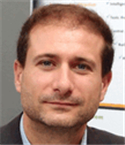 Rodolfo Martins is Founder and General Manager of EVOLEO Technologies, Lda. He has studied his degree and post-graduation in Electrical and Computer Engineering at the Polytechnic Institute of Porto. He started his industrial career in 1999 in the department of test of a production unit. Since 2003 has been involved in the development of Hi-Rel electronics and systems for the space business, mainly with ESA projects. In 2007 founded Evoleo and since then has been worked in the coordination and management of R & D activities. His technical expertise within the company concentrates in the HW electronics design and system engineering
Rodolfo Martins is Founder and General Manager of EVOLEO Technologies, Lda. He has studied his degree and post-graduation in Electrical and Computer Engineering at the Polytechnic Institute of Porto. He started his industrial career in 1999 in the department of test of a production unit. Since 2003 has been involved in the development of Hi-Rel electronics and systems for the space business, mainly with ESA projects. In 2007 founded Evoleo and since then has been worked in the coordination and management of R & D activities. His technical expertise within the company concentrates in the HW electronics design and system engineering 


